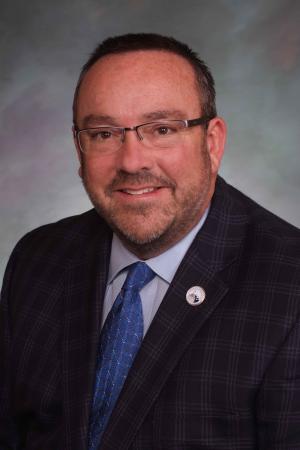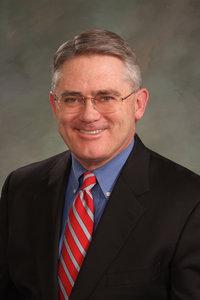DENVER — Multiple media organizations have signed onto a letter sent this week to House and Senate majority and minority leaders calling on legislators to be more transparent during the upcoming legislative session, and to stop using the reaction to COVID-19 as a reason to violate both the intent and spirit of Colorado’s open meetings laws.
“Reporters have learned about ‘working groups’ involving multiple legislators that met via (video conferencing) prior to the special session,” the letter written by Jeff Roberts, executive director of the Colorado Freedom of Information Coalition, said in part. “…. meetings of two or more members of a state public body (are) ‘open to the public at all times’ when those meetings pertain to public business.”
Complete Colorado has obtained a copy of the letter that was signed by the Colorado Freedom of Information Coalition, Colorado Capitol Press Association, Colorado Press Association, Colorado Broadcasters Association, Colorado News Collaborative, Society of Professional Journalists — Colorado Pro Chapter, and Colorado Common Cause.
The letter asks legislators to be mindful of several things as they continue to conduct business and create laws during the ongoing reaction to COVID-19, including:
- Notifying “journalists and the public of such working-group meetings (including meetings that take place in person) and allow contemporaneous access to them. Posting recordings of these meetings on the General Assembly’s website also would ensure a transparent process.”
- “Do whatever is technically feasible to ensure that speakers can be understood and clearly identified by listeners.”
- “Integrate video into the legislature’s system for online monitoring of committee hearings, like the Colorado Channel system for floor sessions, if doing so is feasible. A video feed would help broadcast new outlets adequately cover committee hearings and make it easier for everyone to clearly identify anyone speaking via the WebEx conferencing platform.”
- “Archive recordings of committee hearings as quickly as possible.”
- “Post written public testimony on the legislature’s website so that journalists and the public do not need to file Colorado Open Records Act requests to obtain copies.”
Legislature Access by Simply Sherrie on Scribd
Republicans have accused Democrats of holding private meetings outside open meetings laws to draft bills and strategize since before the special session last month, and again before the start of the 2021 legislative session. They claim they have been left out of conversations about various topics including procedural rule changes that they say limit the voice of constituents represented by Republican lawmakers.
House Minority Leader Hugh McKean previously told Complete Colorado that Joint Rule 44, which was eventually passed, severely limits the number of bills a legislator can sponsor. Although Republicans were able to force an amendment through granting all legislators at least one late bill, the original version granted the Speaker of the House and the Senate President the sole decision about who and how many bills could be sponsored in their respective chambers.
“The process was terrible,” McKean said previously, adding he was not surprised by their tactics. “They did not include the minority party in their process. And they should not have been surprised by five hours of debate on a joint rule because in the end, the minority party only has the rules to depend on to make sure they have a voice. If we don’t have the rules, the minority party might as well not show up.”

McKean said this letter is evidence that a lot of government has been going on behind closed doors.
“But today’s closed doors mean zoom and other virtual means,” McKean said. “The challenge we have is that at least in normal times, meeting notices are posted with an actual address. Now we have meetings that are occurring out of sight, behind some screen somewhere, and the public and the media have no idea what’s going on.”
McKeen said bills that were crafted by Democrats for the special session are perfect examples of meetings that have occurred without proper watchdogs.
“They were put together by the governor and had extensive working groups going on and no one new anything about them until they were introduced,” McKean said. “If they are going to say there has been extensive stake holding but no one knew about it, if you do not let the other party know you’ve been working on it and then claim bipartisan support, it’s facetious. No one should be satisfied to be handed a bill that has already been drafted and (ready to vote on). You cannot draft, edit, correct, mold that fast. It is impossible to do in the last five minutes.”
Senate Minority Leader Chris Holbert agreed, adding he does not believe he or his caucus have been involved in any meetings that were not proper under the law, but said changes to the protocol because of COVID have complicated matters and the usual course of communication has changed immensely. Holbert found out from a reporter that Democrats had announced their delayed session start, despite Holbert previously asking for a meeting of the executive committee to discuss the start date in public.
“(The reporter) knew about the decision before I did,” Holbert said. “They had to have talked to each other at sometime and didn’t talk to me. They came to the executive committee meeting with a revised 44 already drawn up. They had a conversation with someone.”
Holbert said lawmakers should be finding ways to make the process as transparent as possible.

“It’s important that those of us on the executive committee set the example not make the excuses,” Holbert said. “This is a new environment in how we communicate with each other. It used to be we were on the senate floor and just walked up to each other. Now we can’t do that. A legislator can work on his or her bills and get ready for introduction and have stakeholder meetings but is seems odd if a caucus or multiple members are discussing a bill and when it will run.”
McKean agreed, but added he would argue this has been a problem for much longer, COVID-19 precautions have just made it worse.
“I suggest we have run afoul for a long time,” McKean said, pointing out that before when meetings were held, they were in a room in the capitol building that reporters and other members of the public could walk in on. “This has just put a finer point on it. Now the problem is, with Zoom, there are 10 million rooms at any given time that you don’t just have the opportunity to walk past the door and walk in.”
Holbert and McKean both said for their part they will continue to push for more transparency.
“A lot of things we’ve had to learn along the way,” Holbert said. “I don’t want to say I’m completely innocent because I don’t know, but I know those are things we’ve talked about, and there is an ongoing effort to make sure things are transparent. It is critical that we keep in mind open meetings requirements.”


